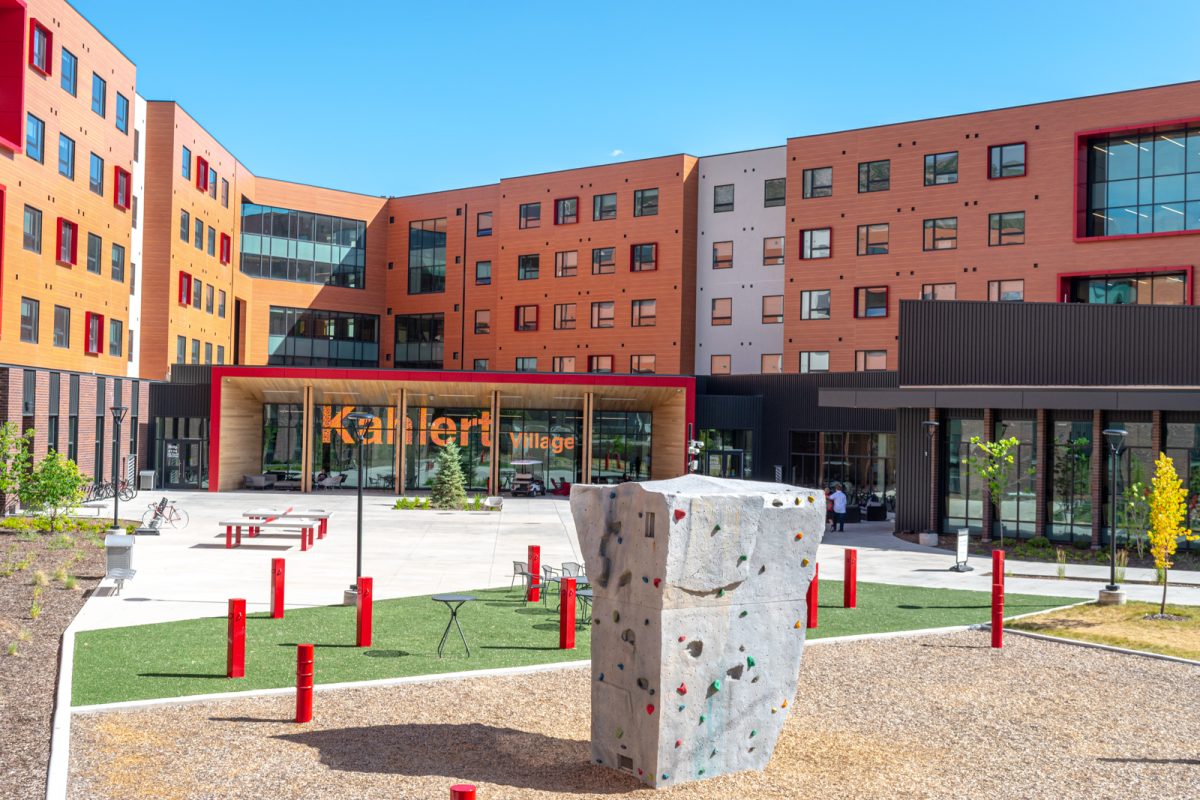In 2024, the University of Utah will provide first-year students with housing. President Randall said, “We want to dispel the notion that the university is a commuter campus.” He strives to expand the U community into a college town. While a noble goal, providing housing for only first-year students leaves upperclassmen in the dust. To create a true college community, the U must provide the same housing opportunities to upperclassmen as they do first-year students.
The Costs
In an interview with the Daily Utah Chronicle, Executive Director of the Utah Housing Coalition Tara Rollins said “Utah ‘desperately needs’ more affordable housing.” Utah already struggles to provide housing to residents. And as of 2022, only 24% of four-year colleges are considered affordable — and that’s without the cost of on-campus living, too. The U has not published direct information about the disparities between freshmen living on campus and upperclassmen living on campus. However, there’s no denying that it is much more expensive for upperclassmen.
At the U, all upper-division housing is over $7,900 for an academic year of on-campus living. Over the years, this number adds up — housing costs now tie with tuition costs as the reason students drop out of college. We must provide affordable living to freshmen students, but cannot disregard upperclassmen in the process. Simply put, many students at the U can’t afford to live on campus due to limited access after freshmen year.
Campus Living Benefits
On-campus living comes with tons of benefits, including access to all-hours in-person mental health assistance, meal plans, fairly quick commutes to classes and the opportunity to connect further with other students. It’s often difficult for commuter students to connect with other students. Students’ commutes can be as long as two hours. With early morning classes, these commutes can cause students to lose needed hours of sleep.
One commuter student, Max Rhineer, takes the bus to campus.
“The biggest downside to commuting is having to be at the whim of someone else’s schedule,” Rhineer said.
They added how frustrating they find it that the bus doesn’t run at night or on the weekends — all times that they attend classes and work on campus. Rhineer said living on campus “would make things so much more accessible” for them.
Commuting also prevents students from engaging in the U’s nightlife. When students can’t be on campus to participate in events with clubs or attend parties, they miss out on the vital social experiences of college. It’s hard to connect with peers when other students live on campus and can see each other and spend time together whenever they want.
Whatever the reason a student has for living off-campus, one thing is certain. They shouldn’t lose out on opportunities, especially if the commute decision is based on affordability. The U should reduce the price of housing to make housing more affordable for all students.
With reduced prices, financial pressures would be less of a concern for all students. Upperclassmen currently living on campus wouldn’t have to deal with the pressure of paying hefty costs for both tuition and housing. Out-of-state students could consider the U as more of an option when choosing colleges, which would help Randall’s hope to grow the student body. Commuter students considering living on-campus would have more time to do homework or work at their part-time jobs. Reduced housing prices expand the quality of life for U students.
Focusing on the Present
The initiative to create new housing helps many. However, the U must also put funds towards fixing the issues current on-campus housing suffers from. In an interview with the Chronicle, third-year student Quincy Noel Sorenson said Sage Point had many issues when she lived there, including “plumbing issues and bug infestations.” The U must put money towards pest control and proper plumbing to ensure the safety of students.
If the U can’t take care of its current upper-division housing, it won’t be able to handle adding more housing to campus. These issues will eventually affect newer buildings in Kahlert Village as well. Putting all funds towards new, fancy buildings does nothing to help students who currently live on campus. The U disregards the struggles of current students in favor of the “future” of campus. But there can be no future without a focus on the present.
The way to a truly united college community is to serve all. The U must handle current housing issues and reduce the prices of housing for upperclassmen so more commuter students can live on campus.
“There’s a benefit to being able to craft your own space as an adult, and being able to pay for that just isn’t a luxury we all have,” Rhineer said.
It’s incredibly important to guarantee first-year housing, but this initiative must also include the U’s upperclassmen. Instead of guaranteeing housing for a few, the U should provide reduced housing for all.




